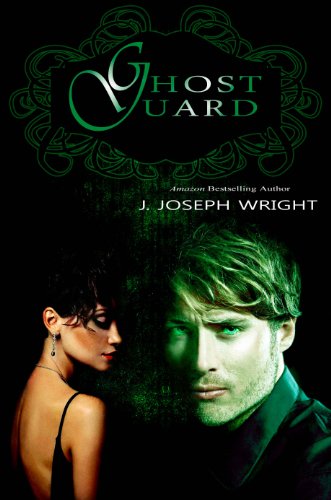“Launched into the world of the newly single, Chuck takes us along for the ride as he makes the painful separation from his wife and finds his feet as a single man….a touching mix of humor and compassion.”
an excerpt from
My Year as a Clown
by Robert Steven Williams
Copyright © 2013 by Robert Steven Williams and published here with his permission
Day 1
I dash out the front door, tossing a dozen supermarket roses on the backseat. I gun the Toyota. Claudia’s flight is due in an hour, and I’m ninety minutes from the airport. I stop at the exit 12 rest area for a double espresso, down it like a whiskey shot, and hop back on the highway. Midday traffic is light, and I push the car to its eighty-five-mph limit, backing off when the steering wheel shakes like my washing machine in super-spin mode. I’m excited. I’m nervous. I’m always this way when I haven’t seen my wife in months.
The espresso jolts my senses. Hyperalert, I scan side and rearview mirrors. I weave through traffic pretending to be a fighter pilot. The a/c is busted and the windows are down; humid air swirls. I turn on the radio to cut the roar. It’s Mike and the Mad Dog debating the opening day losses of both the Giants and Jets. It makes no difference to me. I’m a diehard Philly fan. Tonight the Eagles make their debut on Monday Night Football in the first regular season game at our new stadium, Lincoln Financial Field.
The George Washington Bridge is clear, as is the turnpike. I zip past the Meadowlands, and twenty minutes later I’m juking through the International Arrivals lounge, dodging and feinting like O. J. Simpson in the old Hertz commercial, back when his claim to fame was as an NFL rusher. I’ve got to hurry because Claudia’s flight landed forty-five minutes ago and I don’t want her waiting.
I burst through the line of limo drivers holding signs with passenger names. I sidestep immigrant families waiting for loved ones. I spin around janitorial crews. I cover the entire arrivals lounge in record time. Claudia must not have cleared customs yet.
My wife is returning from another twelve-week archeological dig, this one in Denmark. The separation is never easy, and her first week back is always awkward. Like quarterbacks and receivers at an offseason minicamp, we need time to rediscover our rhythm, but it rarely takes more than a few days. My brother says most men would kill for a three-month vacation from their wives, and if it was during football season he might be right, but at forty-nine and still single, Jimmy’s hardly an expert.
Friends often ask how I get by without Claudia. Some wonder if I just shut down. Do they really want to hear that I beat off to Cheerleader Sex Addicts III? Still, there’s nothing like the real thing. In our early days, Claudia and I couldn’t keep our hands off each other, but today she’ll shower, eat, and hit the hay, zonked from the flight. At least tonight I’ve got the Eagles game. I’ve been looking forward to it since that devastating NFC Championship loss back on January 19, which incidentally was our eighteenth wedding anniversary. Claudia’s still sore that I went down to Philly for the game, but we were favored. We should have won and gone on to the Super Bowl. How could I have missed that?
In the arrivals lounge, passengers leak out of customs in a slow trickle. Clusters of dark-haired Spanish-speaking people come out, followed by a ragtag collection of Eastern Europeans with suitcases wrapped with duct tape. In the waiting area, kids run around making loud obnoxious noises. Families chat as if they’re at a backyard barbecue. Finally, fair-skinned Nordic types parade down the ramp neatly dressed in casual wear, even the children looking like they’ve stepped out of a Nordstrom’s catalog.
I met Claudia backpacking across Europe in 1982. Most guys brought back photographs and souvenirs, a beer stein or an ashtray. Not me. I was the luckiest man alive coming home with the British-born, twenty-year-old Claudia. She wore a tie-dyed dress and Birkenstock sandals the day we met; now she emerges from customs with a Barbour jacket draped over the handle of her luggage cart, blue eyes peering through Gucci frames, her long chestnut hair tied back in a ponytail. I enjoy seeing her like this from afar, as if noticing her for the first time, falling in love all over again. After her nine-hour flight, men’s heads still turn as she passes.
Claudia takes the left ramp, forcing me to bob and weave through the crowd. “Hey,” I say, touching her lightly on the shoulder. I bend to kiss her but she twists away.
“Don’t you still have that cold?” she says. “I can’t afford to catch anything.”
I know she’s a germ freak, but this is beyond even her obsessive self. She steps aside and I push the cart, squeezing the handle until my knuckles turn white.
Derailed in less than ten seconds, a new record.
A lump settles in my gut as if I’ve swallowed a football. Why, when I try to make things right, do they turn wrong so fast? Do I unconsciously undermine myself? Just like the Eagles? In last year’s championship game, they scored a touchdown in fifty-two seconds, but after that it all went bad. They never scored another, blowing lots of opportunities with unforced errors. What might my next unforced error with Claudia be?
She and I silently walk to the car. I toss her suitcase into the back, feeling like a limo driver.
“Can you turn on the air?” she says, fastening her seat belt. “It’s hot.”
“Still broken.”
She hits the passenger window button hard. She takes a map from the glove compartment and fans herself. I point to the roses in the backseat next to my gym bag. “For you.”
She waves a hand in front of her uptight English nose. “How long have those dirty clothes been in there?”
“A few days.”
We weave through the maze of airport ramps and onto the turnpike. The traffic north is thick and greasy.
“How was the dig?” I ask. “Were those animal bones you found significant?”
Claudia continues to fan her face with that map. “The temperature was far more pleasant there.”
“Actually it wasn’t a bad summer,” I say. “And I made great progress with my book, got a solid draft, start to finish.”
We chug past oil refineries, and the stench hits the car like a tidal wave. “Ugh,” she says as if I’d just farted. She puts the window up and rolls her eyes.
I inch the Toyota forward and reach for Claudia’s hand, hoping physical contact will ease the tension. “We’re always a bit on edge when you come back,” I say. “Was it a rough flight?”
“Actually, it was. I didn’t get much rest because—look, there’s no easy way to say this. I met someone on the dig. I have a job in Wisconsin. I’m leaving Thursday.”
Day 2
I wake up in a fog on the futon in my basement studio. I dimly hear Claudia rustling around upstairs. Is she packing? I pull the covers over my head and shut my eyes tight. I want to restart this morning as if yesterday didn’t happen.
The rest of the ride home from the airport was a blur. Things came back into focus at the house. I carried Claudia’s suitcase to the bedroom. She disappeared into the bathroom. When she came out I was on the bed, head in hands. She touched my shoulder. “It’s for the best,” she said.
I wiped my tears with the back of my hand and looked into her eyes. I saw the same azure sparkle I’d fallen for in Europe all those years ago. I pulled her toward me as I’d done a million times. There were tears in her eyes too.
At first it was like any kiss, warm and soft, our tongues gently touching, almost playful, but hers stiffened. She pushed away. “This isn’t a good idea.”
Part of me wanted to put a fist through the wall, smash a guitar, or throw her out the window, but there was no risk that our household would make the eleven o’clock news. My anger simmered, but I wouldn’t let it boil; a rash act could let her off the hook. I had to answer her betrayal with kindness and understanding. It was the cruelest response I could muster.
Claudia’s big announcement had put a damper on last night’s game.
Still, I kept half an eye on the TV flickering in the corner of my studio. The Tampa Bay Buccaneers were trouncing us in this much-anticipated rematch after January’s NFC Championship upset by these very same
Buccaneers. The Eagles were laying a fat goose egg on national television.
I eyed the joint I’d rolled earlier, sitting unlit in the ashtray. One of our cats, Guinevere, the calico, rested on my chest. Arthur, the black one, was upstairs snug in bed, asleep with Claudia.
The first half of the game came mercifully to an end with Tampa Bay up 10–0. The score should have been worse. Guinevere was still on my chest, our breath moving in tandem, in, out, in, out.
Guin suffers from cardiomyopathy, a hardening of the heart. She was diagnosed at the same time I got laid off five years ago. The vet said she’d be dead by now. She requires pills three times a day, but with me at home working on a novel, it’s not a burden. Perhaps my love for her has slowed the hardening. If only she could return the favor.
In the third quarter, the Eagles still looked like a high school team. It was embarrassing after that last beating by these guys, but it was something Eagle fans expected—bearing the cross of failure was part of the job.
Claudia could never understand why I stuck with them. “I don’t know anything about your American football,” she said shortly after we were married, “but I do know they will lose. Why don’t you support the Niners?”
At the time we were living in San Francisco. Montana had already won two of his four Super Bowls. It was a reasonable question, given that all our friends were SF fans. I explained that it wasn’t that easy. I’d followed Philly for over three decades. She laughed and said something that resonates today. “I guess you’re destined for heartache.”
The Eagles haven’t won a Super Bowl, but I remain hopeful.
I should have shut the game off, but I watched to the bitter end. Tampa won 17–0. I caught the postgame interviews and the subsequent recap on ESPN’s SportsCenter. Another cycle of football news rolled by, and I forced myself to witness every replay. Then it was on to celebrity poker. I know Gens X and Y love the cards, but I can’t think of anything more boring on television besides bowling, yet there I was at four a.m. watching B-list TV stars playing Texas Hold’em as if they were the Eagles in the Super Bowl.
September 8, 2003: a day that will live in infamy.
Day 4
Claudia used to complain that there wasn’t enough space in our bathroom with only one sink, the vanity crammed with her bottles, lotions, and whatnots. I rifle through the drawers. All that’s left is a single tampon. But her smell lingers—the eucalyptus shampoo, the jasmine facial cleanser, her aloe vera skin cream. These scents have embedded themselves in the tile the way smoke settles into fabric; no amount of scrubbing or disinfectant will remove them.
I join the cats in the kitchen. Guin is on the countertop licking her paws. Arthur prances back and forth by the water bowl, meowing. I crack open a can of organic cat food. Four furry ears perk up. If only Claudia and I could have lived in the moment the way they do. Look at Guin, she’s not worried about her heart. I chug the remaining half a pot of coffee, ignoring the bitter taste of the brew I made three hours ago, the last pot Claudia and I would ever share.
I’ve spent my first hours as a separated man cleaning the house. I’ve swept the porch, trimmed the hedges, and raked the leaves. These chores cleared my mind, cleansed the wound of betrayal, but each time somebody drove by, I glanced up hoping to see Claudia’s green Mazda 626. I’m back in the house now, vacuuming the living room, an eye still on passing cars.
A Ford Taurus pulls into the crescent driveway. A bearded man in a baggy dark suit exits the vehicle. Admittedly, I’m a paranoid wreck, but anyone can see that this is a man carrying a summons. Claudia’s lawyer is having me arrested. I’ve got to run, gather the cats and head north for the border. I ricochet around the house, ending up back in the living room. I gape through the bay window. The bounty hunter is now halfway up the drive, his walk slow and confident, his black wingtips shining. I kneel down behind the window shade. With a better angle I realize this is no representative of the law, it’s Simon Godfrey, the rabbi I met at an open mic last month. My heart slows. Simon hired me to help him make a CD. I forgot he was stopping by. The suit threw me. I open the front door, much relieved.
“Shalom, my friend. I’m on the way to synagogue.” He loosens the knot of his red-striped tie. “I promised to drop off these CDs.” He hands me a plastic bag filled with his favorites. “Listen to this first,” he says, pulling out a Rebecca Levy CD. “She’s the daughter of the famous Rabbi Mordecai Levy, you must know him.”
I know little about contemporary Jewish music, but I smile as if I do. Rebecca’s wearing a low-cut evening dress, her long blond hair cascading across her left shoulder. She looks more like a Victoria’s Secret model than the offspring of a religious luminary.
“She’s hot,” Simon says. “Yes?”
I don’t know what to say. Is this a values test? My hesitation betrays me.
He slaps me on the back. “We’re not Catholics, for chrissakes.”
“Right,” I say, still feeling awkward in the way I felt when my father gave me the birds-and-bees talk. Simon’s clearly not your typical rabbi, but I’m in no mood for jocular humor. I’m in mourning, sitting shiva, as the Jews do when someone dies. Good thing Simon has to be elsewhere. Before he leaves he asks if we’re still on for next week. “Sure,” I say, but I can’t see past the next five seconds, let alone the next few days.
Back in the house, I set the CDs aside and unload the dishwasher. The cats join me in the kitchen, eyes wide, meowing. Their bowls are empty. I can’t remember if I’ve fed them. I open a can and dole out half to each. They eat as if they haven’t seen food in a week.
There’s another knock at the door. This must be Claudia. I rush to answer it, but it’s Siobhan, my Irish neighbor, holding a covered dish that smells heavenly. “Strawberry-rhubarb,” she says with her emerald accent.
Last night, Claudia went over to say good-bye at my insistence. Siobhan and Paddy moved here five years ago. He works for an Irish bank and does something with derivatives. They were one of the few couples we’d socialized with, and I was hoping that seeing them might bring her to her senses. When she returned, she said nothing. I was dying to know what happened, but now it doesn’t matter, I just want to sulk in solitude. Still, the pie does smell delicious.
“That wasn’t necessary,” I say, feeling obligated to invite Siobhan in.
On this warm, muggy day, Siobhan stares at me through bookish glasses, wearing a frumpy sweater, a long skirt, and stockings. She’s pale, like Irish cream, and sprinkled with freckles. I offer to make fresh coffee. She insists that I sit and serves me a slice. The pie has a glazed, crusty, homemade shell. The filling is sweet and tart.
“This is fabulous,” I say. “Claudia never baked.”
“The English rarely do.”
I swallow another mouthful and feel more in the mood for company. “Tell me everything.”
Sitting beside me, Siobhan whispers as if Claudia is still upstairs. “I couldn’t credit the nonsense coming out of her mouth. She told me that you’ll never finish the book, that you made a mistake leaving the business world. She said she couldn’t wait to get out of here.” Siobhan removes those thick-rimmed glasses to rub a few tears from her freckled cheek. “I told her she was mad.”
I grab a Kleenex from the box by the sink and hand it to her. She sniffles. “I came to console you.”
I force a smile. “What made Claudia lose faith in me?”
Siobhan pats my arm; the warmth of her touch is comforting. “Have you filed for divorce?”
I look at my brown boat shoes. The frayed leather laces need replacing. “Yesterday. Claudia’s being fair, I’m keeping the house.”
“You must be relieved.”
“Well, my lawyer says I’m lucky, but I can’t say or do anything that might upset her until the judge approves it. Can you imagine? I have to be nice while she’s off with him. Bartholomew. What the hell kind of name is that?”
“It’s all terribly unfair,” Siobhan says. “Here, have more pie.”
It’s a hot, sticky September afternoon. The sky is low and purple, like a fresh bruise. I sit in one of our Adirondacks, staring like a zombie into the backyard. We got a great deal on these chairs in Lake Placid two years ago. We’d gone camping over the Labor Day weekend and picked them up on the way back. Now the damn armrests have splinters.
The cats are chasing birds and voles in the yard. The trees are still mostly green, only the chestnut by the pond is bare. I shut tired eyes and drift away.
Someone is shaking my arm. I must have dozed off. It’s the first real sleep I’ve had since the big announcement.
“Mommy wants to know if you’ll come to dinner,” says Erin, Siobhan’s seven-year-old.
“Sure,” I say, wondering how long I’ve been out.
Erin drags me from the chair, her ginger braids swaying. “Come on, sleepyhead.” She leads me past the azalea bushes and into their garden. “I never liked Claudia.”
“Oh,” I say, surprised that she knows. “Well, she wasn’t used to kids.” Erin shrugs. “What’s there to get used to?”
We go up the back steps and into the kitchen. Two columns of steam rise from the stovetop. The air is heavy with garlic chicken. Declan, the five-year-old, sits in a booster chair at the dining room table. “Hi, Chucky Cheese,” he says, laughing, his Ninja Turtle T-shirt already splattered.
Paddy is working late. Siobhan sits me at the head of the table next to Erin, Declan to my left. “Wine?” she asks, pouring red into a glass.
The kids devour french fries and poke at the chicken and peas. I joke around. We laugh. We talk about the Scooby Doo movie they just saw.
After supper, Erin does homework in her room. Declan sits in Siobhan’s lap, sucking his thumb. “You’d make a fine dad,” she says.
“Really?” I sip my wine. “Not sure why we didn’t have kids. Guess it doesn’t matter now.”
“Funny,” Siobhan says. “I was a lot like Claudia, not interested, and then I got pregnant, and now I wouldn’t change things for the world.”
This was news to me, Claudia not wanting children. Whenever we discussed it, though it hadn’t been often, she’d never dismissed it, and yet she’d told Siobhan she didn’t want kids.
“Do you have a therapist?” Siobhan asks.
I swirl the wine in my glass. “Why? Do you think I’m crazy?”
“It couldn’t hurt to talk to someone who can provide objectivity and guidance.”
Siobhan pours more wine. Declan yawns, revealing a missing front tooth.
“Paddy and I saw someone this summer,” she says. “I was tired of him working late. It was as if he were looking for reasons not to be home. He promises things will change.”
I squirm, wondering why she’s telling me this. Is it because she has a front-row seat to the most humiliating experience of my life? Or is it because her marriage is headed for disaster and she sees possibility now that I’m available? A weight settles in my gut. It never crossed my mind, me and Siobhan, but now that I’m single, I guess I’ll have to pay attention.
Declan pouts. “I’m hungry.”
“You just ate,” she says, plunking him back in his booster seat. She goes into the kitchen and returns with a mini ice cream for her boy and the number of that therapist for me.
Back home, slightly buzzed, I head downstairs to my office in hopes that Claudia has sent an email: nothing. On the wall is a picture of us on our Hawaiian honeymoon. We’re standing on the beach at the end of the Na Pali coast’s Kalalau trail. We’d just completed the twelve-mile, two-day hike. I’m looking at youthful faces shining with belief that together anything is possible. There’s no hint of the huge fight we had about pushing back our honeymoon a day. It was just one day. What was the big deal? We eloped Saturday in Reno, I caught the Super Bowl on Sunday in Palo Alto, we left for Hawaii on Monday. But it was a big deal for Claudia. If I could have scored a second ticket, I would have.
I take that Hawaiian picture down and shove it in a drawer.
Siobhan is right, I probably do need help. We’ve lived next door for years, and tonight was the first time the thought of screwing her came to mind. Is this how it will be from now on? A woman speaks to me and I’m gonna think, Does she want to fuck?
Well, I might be in desperate need of assistance, but so might Claudia. She could be anywhere at this very moment. What if she’s in trouble, then what? I grab the phone and punch in the first three numbers of her cell, then hang up. Someone needs to make sure she’s okay, but that someone’s not me. I’d like to think that it’s my last shred of dignity that keeps me from calling, but really it’s the fear that she’ll say, If I was in trouble I’d call Bart, you idiot.
Day 5
Guin paws my face and I wake. Arthur is still asleep on Claudia’s side, his furry black head resting on her pillow. For a moment it’s as it has always been, my wife is simply overseas, but that feeling fades fast.
I trudge downstairs. It reeks of cat. I can’t remember when I emptied the litter box last. It’s a warmish day and I open the windows. I fill their bowls with dry food. At least I don’t have to go to work. I used to scout bands for Stella Records. My claim to fame was discovering Primo, and in some circles that’s still considered cool. It would’ve been cooler if Pyre Mint, the lead singer, hadn’t died shooting up in the bathroom of a Concorde after their album went gold. Those in the know said Primo would’ve been as big as Nirvana, but there was no followup after Pyre’s death, and the demos that did exist got tied up in lawsuits. When the label was sold, I lost my job and started writing a novel about my grandfather’s escape from Russia. I’m too old now to crawl around bars looking for bands; MySpace, the latest music craze, for me is anything but.
During this five-year post-Stella period, my wife and I were either together or apart 24/7, and that’s like a car balls-out on the highway for half the year, in the garage the other half. It’s no way to treat an engine, and it wasn’t ideal for a marriage either.
Thank God I don’t have to deliver a divorce update to an office full of colleagues, but there are family and friends to inform. It’s the last thing I want to do, but at some point I must notify this inner circle. Perhaps I can put something on the answering machine.
Hi, you’ve reached the former home of Claudia and Chuck. She moved to Wisconsin with some asshole she met on a dig, but I’m still here, so if you want to leave a message, speak after the beep.
Or I could pretend nothing happened. Odds are I’d make Christmas. Then I could put a brief note in the Xmas cards.
Dear Friends,
Hope you had a great year. Mine was shit. Claudia moved to Wisconsin with some archeologist, but I’m still in Connecticut depressed and incoherent. I don’t have their address, so don’t ask.
I eat a bowl of cornflakes and down a cup of coffee. I’m in no hurry to tell friends, but I’ve got to call Mom. We speak once a week and I’m several days overdue. I pour another coffee and spike it with whiskey. I bring the mug and the wireless phone out to the deck. I dial Florida.
“The new condo is wonderful,” Mom says. “You should see the view of the golf course. We’re by the lake. It’s spectacular.”
“That’s great, Ma.”
“Marty said he’d put new bookshelves in the den, but he’s not like he used to be. He doesn’t realize that once you turn seventy-five—well,
it’s no good to get old, Charles, no good at all.”
“I’ll try to remember. Ma, look —”
“Have you heard from your brother?”
“No.”
“Progress on the book?”
“I’m still writing—”
“Nothing from your brother?”
Jimmy’s been her favorite since divorce number one back in 1970; nothing to date has changed that. It doesn’t help that I look more like my father—apparently it’s the teddy bear eyes. I was ten when Dad took off with that hippie chick. Jimmy picked up the slack while Mom worked. He cooked, cleaned, did laundry and odd jobs. I was too young to be of much help, and on top of that, Jimmy always got good grades, excelling all through high school while I collected Cs and smoked pot.
Dad reappeared twelve months later claiming he’d been abducted by a cult. He said someone had spiked his cocktail with LSD and he’d temporarily lost his mind. Mom wasn’t that dumb.
This week I’m feeling as if someone had spiked my Kool-Aid.
“No, I haven’t spoken to Jimmy in ages. Look, Ma—”
“It’s been over a month since he called,” she interrupts. “Mr. Real Estate in Dallas is too busy for his own mother.”
“Ma, Claudia got a job. She’s moving to Wisconsin with some guy.
We’re splitting up.”
“Oh my.”
I hear a match strike, an inhale, and another. “I thought you quit.”
“I’m starting again.”
“You’re blaming me?”
“Of course not, Charles. Are you okay? I can be on the next flight.”
Her voice grows muffled. “Marty, get the pink suitcase out of storage.”
“Mom, please, don’t.”
“I’m sure there’s a flight leaving tonight.”
“I don’t want you to come.”
“At times like this family sticks together.” “I’m fine, really.”
She takes a long drag off that cigarette. “How about flying down? There’s plenty of room. Marty’s got new clubs. There’s an extra set. You two could play.”
Marty is husband number three. They met on a Jewish singles cruise two years ago, got married six months later.
“Mom, I want to be alone.”
“So you’re Greta Garbo now? Do you have a lawyer?
I’m not about to admit that I hired a guy from my gym, Richard Krupp, who shares a receptionist, conference room, fax, and copier with three other lawyers in downtown Putnam’s Landing. That’s so like your father, Mom would say, choosing some shmuck from the weight room rather than hiring the best guy in the county.
“We’ve negotiated a settlement,” I tell her, “but it’ll take time to finalize. Claudia’s being reasonable because I put her through all those years of graduate school. I’m keeping the house, she’s getting her car, insurance, and a hundred and fifty grand.”
Mom takes another drag. “You have that much cash?”
“I’m happy to sell stock so that I don’t have to move, even though the market hasn’t recovered. The house took a hit too.”
“Okay,” she says, “but be careful. She’s never worked a day in her life. I hope this guy she’s found has money.”
I’m usually okay with Mom speaking her mind, but today I’ve got no time for honesty. “Let’s not go there.”
“Say you’ll come for the holidays. Promise? It will be nice. If you hear from your brother, tell him to call.”
Over the years Jimmy and I grew further apart, speaking only on birthdays and major holidays. We have little in common except football. As kids we were Eagle fans, and before Dad left, the three of us watched a lot of games. We were both too young to remember the Eagle championship of 1960, but Dad waxed poetic about that team, Chuck Bednarik in particular, one of the toughest guys of his day, and the last of the NFL’s sixty-minute men, playing both offense and defense. After Bednarik retired, Dad sold him a color television, and in ’71 Dad bought a Thunderbird at a Ford dealership on Route 38 where Bednarik was making an appearance. The great man actually remembered Dad, and I’ve still got a picture of us with him and that car on the wall in my studio, next to the shot of me and Bruce Springsteen backstage circa ’92.
Jimmy moved to Texas in the late seventies and switched his allegiance to the Dallas Cowboys, the archenemy. The bastard now has fifty-yard-line seats at Texas Stadium. He and Dad didn’t speak much after that, and I’m sure Jimmy’s defection to the Cowboys had something to do with it.
Jimmy hit forty without a significant relationship. I suspected he was gay. He loved Italian designer suits and casual Ralph Lauren on the weekends. He talked about women like he was trying too hard, slipping pussy into conversation where it wasn’t needed, but on the two occasions I did visit Dallas, I couldn’t miss the babes clinging to him like the gold chains draped about his salon-tanned neck.
My brother was sure that when Claudia went on a dig I had women on the side. I told him I’d been faithful, and that was the truth. “It’s all right,” he’d say, like a priest offering absolution. Jimmy thought I was bullshitting, which would have been okay in his book, but if he’d known the truth, he would have told me to get my head examined.
I’m no saint, but I am loyal. Yes, there were temptations, especially these past years when Claudia just wasn’t interested. I had thoughts, but I never acted on them. And yet now I’m feeling like a fool. Perhaps Gandhi felt this way as he was mowed down by his assassin, although from what I know about Gandhi, he was probably forgiving that asshole as the last ounce of life drained from his body. I’m certainly not enlightened enough to forgive Claudia. In fact, looking back, it breaks my heart to think about all that lost opportunity, the women who came on to me when I was at Stella. It’s easy now to wonder what on earth I was thinking or how I could have loved Claudia that much, but that’s just asking for trouble.
The phone rings. I don’t feel like talking, but the receiver sits on the armrest and the caller ID winks at me like my last secretary often did. The caller is my brother.
“Fucking bitch,” he says. “My baby bro, the one honest man on the entire frickin planet, and his old lady cuts off his balls. It just goes to prove what I’ve been saying all these years, there’s no pussy worth making a commitment for. Don’t worry, my man, there’s plenty of other poontang in the sea.” “It’s okay,” I say.
“Bro, I just wrapped up a deal. I’m on the next flight, already have my ticket. I’ll grab a car at the airport, be there by seven. I’m gonna fix us up with something mighty fine, promise.”
“Jimmy, don’t.” But it’s too late, he’s hung up.
Day 6
Jimmy called around six o’clock last night to say that the deal he’d been working went south. He promised to come in a few days once things got sorted. I told him not to bother, greatly relieved. He protested, but I know him well. Odds are I won’t hear from him for weeks.
Saturday morning I wake with the cats, sun streaming through the bedroom skylight we installed our second year here. That inaugural evening Claudia and I had a picnic in bed, looking up at the stars like teenagers. On this warm September morning, light filters through blistered Plexiglas, aged from years of sun, rain, and ice.
I get out of bed and throw on jeans and a brown T-shirt, both purchased at an outlet center on the way home from last year’s Vermont vacation. Claudia insisted on choosing my clothing. She had a great sense of style, color, and fit. She upgraded me from Levi’s to Diesel jeans and made me throw out my grunge flannel. She wasn’t girly in the sense of wearing lots of makeup, getting her hair done, or needing a weekly pedicure—she was a natural beauty and required little touch-up—but she did enjoy browsing Cosmo and other fashion magazines in line at the supermarket.
After feeding Art and Guin, I brew coffee with the espresso maker my mother-in-law gave us. I drink from a mug we bought at the 1999 Putnam’s Landing Arts and Crafts Festival. After a third coffee refill, I realize I’m surrounded by Claudia memories. A photograph of the Grand Canyon hangs over the sink, from a trip we took in ’88. Even the cordless phone is smothered in Claudia: the first three speed-dial numbers are her mother, her brother, and her best friend, Jill.
I touch the phone and recoil as if stung by a wasp. I stagger dizzily. The walls and ceiling close in on me like I’m in a scene in a James Bond film. I hear Claudia’s voice on the television—she’s laughing evilly. Steel daggers shoot out of the approaching walls. The air is sucked from the room. I grab my throat, gasping for breath, and everything goes dark.
I wake covered in sweat. I open my eyes and the kitchen is as it should be. On the TV an ESPN reporter in an expensive suit talks football. My shirt clings to my chest, soaked in sweat. There’s a small bump on my forehead. A sour taste lingers in my mouth. What the hell?
I get up and wipe my brow. I grab the phone and delete those three speed-dial numbers. I yank the little card with Claudia’s handwritten notations off the receiver. I rip the photo off the wall and shove it in a drawer. My head throbs. I pop three aspirin. I’ve got to get out of this house.
I hop in the car and fire up the engine with no idea where I’m headed. Nowhere, apparently, because the driveway is blocked by a massive yellow bulldozer. My neighbor David DePolis tore down his house last year, and it’s been a construction nightmare ever since. A new McMansion now occupies what was once a pleasant wooded acre. I’ve suffered through a barrage of jackhammers, saber-tooth saws, and cement mixers. The end is still nowhere in sight. I drum my fingers on the dashboard, knowing better than to confront a man wearing a fully loaded tool belt. I search under the seat for a CD and come across Sheryl Crow’s Tuesday Night Music Club, not my favorite, but one of Claudia’s top ten. Now I’m crying.
Finally the driveway is free and I’m off.
We moved from the city to Putnam’s Landing eleven years ago because Claudia wanted to get her Ph.D. from Yale in New Haven. I was at Stella then, and though I had mixed feelings about leaving Manhattan, I leveraged the commute by listening to prospective bands on my Walkman, discovering Primo on one such day.
Over the years, I’ve lost my city legs. I prefer beaches, blue sky, and deer in the backyard to city parks, pigeons, and traffic. Besides, Putnam’s Landing had a lot going for it when we moved here in ’92.The town had a rich cultural tradition dating back to 1920, when F. Scott Fitzgerald spent a drunken summer here with Zelda. Main Street attracted lots of visitors because of its classic New England feel and unique merchants, its two bookstores and a funky soup place well worth the wait, but chain stores soon sprouted like weeds, and today the street is little more than an outdoor mall with cobblestone sidewalks.
The neighborhoods changed too. The DePolis project is just a part of a teardown movement aimed at obliterating the taste and character of the community, but our house at 17 Turnstile Lane still stands. It’s a cape dating back to the thirties, with a cozy entrance, a brick fireplace, and a Jacuzzi on a redwood deck off the kitchen. There are no fourstory atriums or expensive chandeliers; the kitchen doesn’t have the latest stainless-steel Viking appliances or granite counters. Anyone who might buy our house would knock it down, but it’s home, and I still love it, Claudia or no Claudia.
It’s only a few minutes to the interstate. I roll down the windows, and the freedom of the open road licks my face with wet, sticky air. Claudia and I took many road trips, including several cross-country excursions. We’d share the driving, the passenger navigating, providing snacks and beverages and the occasional neck massage too. Those days are over.
Somehow the wide-open road leads me to the house of my good friend Jake Gamache, a music professor at Fairfield University. He lives in Black Rock, a gentrifying area of Bridgeport. He bought a Victorian only a few blocks from Long Island Sound, for a lot less than something comparable in PL.
His wife Beth, a fourth-grade teacher, is on her knees in the front yard, garden shears in hand, trimming a patch of bright orange mums. “Howdy,” she says, slipping off her gloves. Beth’s a beauty, and if she lost thirty pounds she’d be TV-presenter material, even in HD. She’s also one of the friendliest people I know. Maybe it’s because she wasn’t born in Fairfield County, known for its wealth, prep schools, and country clubs.
“Don’t get up,” I say. “Is Jake around?”
“Still at school. How are things?”
I provide the Reader’s Digest Condensed version.
“My God,” she says. “Let me get you something to drink. Coffee?
Tea? How about something stronger?”
“Do you have a sledgehammer?”
The Gamaches’ two Dalmatians, Treble and Bass, gallop toward me. They’re big dogs. I hug them and they slobber all over my face. Beth herds them into the backyard.
The kitchen is cozy. She sits me at the table with the checkered plastic cloth. She offers whiskey and I splash a shot in a cup of coffee.
“Tell me everything,” she says. “Absolutely everything.”
I do until I start crying. I wipe sweat from my forehead, feeling beady-eyed and incoherent. “Do I look like a man who’s just slammed into a brick wall? Tell me, please.”
“Considering what you’ve been through, you look fine. But what happened to your forehead? You’ve got a bruise.”
I’d forgotten about my morning panic attack. The aspirin blunted the pain, and I had no idea there was physical evidence. “I accidentally hit my head in the basement,” I say. “I didn’t realize I’d hit it that hard.”
Beth goes to the freezer, puts ice in a plastic bag, and returns to apply the pack to my head. The cold feels good, but I’m struck by the oddest of sensations with Beth this close. Her perfume has hints of vanilla. Her breath warms my skin. I’ve always thought her attractive despite the extra pounds, but I’ve never had these sorts of feelings for a friend’s wife.
My thoughts scare me. They repulse me. They excite me too.
I stand up. “I better be going.”
“Are you sure you don’t want to stay for dinner? Jake will be home soon.”
“Nah,” I say. “The cats need feeding.”
Beth steps up on her tippy toes, wipes my forehead with a cloth, and gives me a hug. “You come over anytime, okay? We’ve got the guest room if you want to sleep here.”
Day 7
I wake Sunday to Guin licking my face. Her tongue is prickly, like sandpaper. She’s purring, hungry. Arthur’s affectionate too, but not so much as in winter, when he’s cold. I love these guys and so did Claudia. Maybe getting them eight years ago was our substitute for children. We both understood that cats were roughly a fifteen-year commitment. I was at Stella, and Claudia nursed them through kittenhood. Sometimes she’d call in the middle of the day, excited over something only a proud parent would care about. Once it was simply that cute little Arthur had crawled into her fleece pocket. Claudia was in Turkey when the vet discovered Guin’s heart murmur. I called with the news and we cried for almost an hour at the international AT&T dialing rate.
It would be easy to say that Claudia was incapable of love, that she used me to get a green card and finance her education. That may be true, but I have no doubt she loved Arty and Guin. How she could walk out on them is beyond comprehension.
Lying here beneath the covers, I suddenly feel violated, emotionally raped. It must be this king-sized mattress. It has absorbed everything that passed between Claudia and me: the sex we had, the fights we had, the sex we didn’t have too. All these memories shoot through my veins in a blood-red collage. I have to get rid of this fucking bed.
I devise the perfect plan. The Eagles take the field this afternoon for redemption after that Monday night debacle. I need them to redeem themselves to soften the blow of my wife’s betrayal. In honor of today’s game I will tailgate with a bonfire fueled by this classic Chamberlain bed, one hundred percent Vermont cherrywood, which cost me over two grand.
I disassemble the bed and drag it down the stairs into the backyard. The mattress and box spring go to the curb for trash pickup. Good riddance, sheets and all.
Dressed in Eagle green, I light a match. The bed burns hot and fast. I dance around the fire. To get Arthur and Guin in the mood, I toss a little catnip on their scratching post. I smoke a joint, I drink Irish coffee. I hope the Eagles are more clear-headed than I am at game time. I need this diversion, the thrill of seeing the Eagles pound a quality outfit like the AFC powerhouse New England Patriots, but the game quickly turns. Thank God the fire went out before I got too blitzed.
It’s difficult to imagine, but the Eagles look worse than last week. So do I.
I wake the next day with a serious hankering for Claudia and my bed—this goddamn sofa futon is nothing but lumps. I smell lavender, her shampoo, and it reminds me of the silky feel of her wet hair after a shower. Part of me believes she’ll be back any minute; the rest of me knows better.
I walk into the kitchen and turn on the small TV by the microwave. When Claudia was here, she tuned the set to the History or Discovery channel, but now it flickers on to SportsCenter. One of the ESPN anchors is talking about the Eagles. Rush Limbaugh says our quarterback, Donovan McNabb, is overrated because he’s African American. Limbaugh claims no NFL team can win with a black quarterback. According to the report, Philly fans aren’t happy with McNabb either, but nobody is stupid enough to go where Limbaugh has gone. I’m sure McNabb is disgusted at his performance too. The team’s off to a horrendous start, but he’s a professional, it’s his job to deal with pressure. My guess is, Donovan isn’t looking to the critics or fans to give him a hand, but I’m sure a few kind words from those who once heralded him as their hero would be welcomed. I too would appreciate a call or note from the one person who once thought of me as her shining knight.
From: writerchuck@earthlink.com
To: Guinevere7@aol.com Subject: Scorched
Dear Claudia,
I’ve wandered aimlessly since you left. It’s like a desert here. Burned by a blazing sun, I’m dying of thirst, incapacitated. There’s still time to breathe new life into what we had, but we’ve got to slow down this divorce, take the emotion out of our actions. It must happen soon or it’ll be out of our hands. I should’ve insisted that you stick around one more week. We could have talked more, seen a counselor, perhaps gone to Vermont or even Venice, if that’s what it took to remember what held us together all these years.
I know things haven’t been perfect, but even last week there were moments, like when we went to the movies. I’m sure I can do better and I accept responsibility for everything. Please, Claudia, give this one more chance. Don’t we owe it to ‘us’ to make sure?
Love,
Chuck
It took me three hours to compose this drivel. I sit at the computer now debating whether to send it. An emotional appeal won’t penetrate Claudia’s reserved British upbringing or relax that stiff upper lip. She’s unflappable. She doesn’t care that our marriage has faded like an old Polaroid. I stare at the screen and realize there’s no point in trying. I hit Delete.
The Limbaugh/McNabb story balloons over the next few days into national headlines. Rush looks like a moron. This should boost McNabb’s confidence, make him want to prove Rush wrong. I should get back to rewriting my novel too, prove Claudia wrong, but I can’t. I wish I could say it’s because of the rage, that I’m still on the edge, frazzled, freaked, and teary-eyed, but I’m none of these things at the moment. If only I could explode, binge-drink, or make an ass out of myself. This is the one time I could get away with almost anything. I hold a Get Out of Jail Free card, but I have no courage to be bad, bold, or naughty. All I do is compose feeble letters to my wife.
From: writerchuck@earthlink.com
To: Guinevere7@aol.com Subject: Dying Days Near
Dear Claudia,
Remember that time we camped in Denali National Park? We were seventy miles from the nearest town, on the tundra with only what we could carry on our backs. Wolves howled through the night. Grizzlies lurked. It dipped below freezing and we zipped our sleeping bags together for warmth. After we made love you told me this was as good as it gets. We even talked of retiring six months in Alaska, six months in Hawaii, and we still could. I can only imagine you’ve walked out because you think I’ve done something so horrible that you cannot give voice to it. Please talk to me. Give me a chance to defend myself.
I reread this email ten times. Inside my head it’s clear what needs saying, but when I try to write it, the words collide in a jumbled mess.
I hit Delete and head to the kitchen for whiskey and weed.
Days 11–15
I’ve been a member of the Fairfield Gym for over ten years. When I was at Stella, it was difficult to get here during the week, but since I started writing, I go often. Mostly I play squash, a sport I’d never heard of until I met Claudia. Her dad played. When we moved to PL, the gym had squash courts and I took lessons. Whacking a small ball around an indoor shoe box is great fun.
As a kid I played the typical sports and was decent at them, but once things got bumpy with my parents, I found more comfort in music. Late at night I dreamt of being a Monkee or a member of the Partridge Family. I listened to Dr. Don Rose, a deejay on WFIL, Philly’s number-one Top 40 station, but it was Iron Butterfly, the Beatles, and the Stones that got me to pick up a guitar. When Dad disappeared, I found solace in Neil Young’s album Everybody Knows This Is Nowhere. By the time my folks got officially divorced, I was heavy into Ed Sciaky on WMMR, 93.3 on the FM dial. Most kids my age were still listening to AM. Soon my brown hair shot past my shoulders, I started smoking pot, and I learned power chords on electric guitar.
If Dad had hung around, I might have become a jock instead of a freak, because I sure can hit a squash ball. Today I’m playing Rose Callahan, a former woman’s champion, on court number one. She and I have great games despite the extra pounds I carry, but I haven’t hit a ball since I picked Claudia up at the airport last week. I’m sluggish from lack of sleep and too much booze and weed. Odds are I won’t give her a game, but competition forces you to forget the outside world—perhaps visualizing Claudia’s head as the ball will provide an advantage.
Rose is already on court practicing her drop shot. She’s gymnastsize, small, trim, and muscular. Tendons flex when she swings. Her manicured brows narrow underneath protective eyewear. I enter the court and we shake hands.
“I heard,” she says. “I’m sorry.”
“Word spreads like wildfire.”
“My divorce with Allan was the worst, but it gets better, trust me.” She hands me the ball. “I’ve got some really cute friends to set you up with.”
“Jeez, I don’t know, I haven’t given that much thought.”
“When you’re ready.”
The match begins. Rose controls the court from the start, but I retrieve her shots, focusing on accuracy instead of speed to keep her moving. I play with verve and hustle, but in the end she’s in much better shape and wins easily.
As we head to the lockers, Rose hands me a slip of paper with the phone number of her friend Joan. “Call her when you’re ready.”
I should get back to working on my novel, but I can’t face the blank page, so I hop on the freeway and head to Jake’s. I’m half hoping he’s not there, but his truck, with the Jerry Garcia bumper stickers, is in the left bay of the two-car garage. Part of me, the sensible part, is relieved. His son Charlie is in the driveway with three friends, each holding a skateboard and sporting a fresh crewcut.
“He’s out back,” Charlie says.
Beth’s in the kitchen shucking corn in a red-striped apron, her hair tied back with a barrette. She gives me a hug and asks how I’m doing. She still smells of vanilla, and I do my best not to focus on her bosom against my chest. I turn down a beer, opting for a Diet Coke in a frosty mug. Our fingers briefly touch as I take the mug.
“Jake’s in his spot,” she says, smiling.
I go out to the yard feeling guilty. The dogs charge me, barking madly. “Knock it off,” Jake hollers, lumbering out of a hammock strung between two old chestnut trees. He tosses the newspaper on the white netting. His beer belly hangs heavy in a navy tank top. “Buddy, he says,
“I’m so sorry. I can’t believe it.”
“Neither can I.”
“Want to get stoned? I just scored.”
We head to the far end of the yard, behind the maple tree. We smoke the joint in silence. We walk back to the patio and sit on the plastic chairs. I look at the cloudless sky. Jake bends to tie his high-top sneaker.
“How’s school?” I ask.
“Going great, got some real good students this semester.” Jake tugs on his peppery ponytail. “She’s moving to Wisconsin?” I nod. Little else is said.
On the way out I say good-bye to Beth. Jake walks me to my car, handing me a slip of paper, just like Rose did. This one has the phone number of a girl he’s known since high school. “She’s cool. You’ll like her.”
“I can’t imagine dating right now.”
He shrugs. “You will.”
From: writerchuck@earthlink.com
To: Guinevere7@aol.com Subject: Vultures, voodoo and medicine men
Dear Claudia,
You’ve been gone over a week now and I’m walking on burning sand with blistered feet. The vultures stripped what remained of our marriage to the bone. Perhaps there’s a Haitian voodoo woman or a Cherokee medicine man that can revive our love, but it’s a long shot. Besides, if you’d had an inkling of change in your heart, even a solitary drop of doubt, wouldn’t I have heard something by now?
From: writerchuck@earthlink.com
To: Guinevere7@aol.com Subject: Black and White
Dear Claudia,
The leaves are about to turn, our favorite time of year, but it’s a dreary autumn, the color muted. Even sunny days are overcast.
These Hallmark notes make me want to puke. I can’t even write a simple few lines asking what the fuck happened. I hit Delete.
I have another squash game on Monday, with Craig, a guy I’ve played numerous times. We’ve never spoken of anything other than the game. I have no idea what he does for a living, but I do know that he’s divorced, and I suspect he knows of my situation because he’s careful not to look at me when I enter the court. We have a close match and I win. In the locker room he asks if I want to grab a beer even though we’ve never socialized before. Why not? I’ve got nothing better to do.
We end up in a Southport bar popular with middle-aged bikers who ride expensive custom Harleys. Craig’s clean-shaven, and his short-cropped hair looks professionally colored and styled. He wears khakis and suede shoes; he drives a Lexus. I assume he’s in banking or real estate.
“I’m an investment banker,” he says once the pitcher arrives. He pours for both of us. “Got my own company now, but I used to work in the city.”
I nod. He talks.
“I made good money but put in long hours. My wife had an affair with the fitness instructor.” He leans forward. “Can you imagine? I was paying him a hundred bucks an hour to screw her.”
Craig’s been divorced four years, but his anger, his disappointment and sadness, is all very much present at the table with us.
“Children?” I ask.
“Three, all in college. They cost a fortune, but they’re good kids.”
Craig has a girlfriend, but he’s keener to talk about his ex, the plastic surgery and boob job, the weekly shopping excursions into the city. By the time we’ve ordered a second pitcher, he’s told me that the affair with Mr. Fitness was short-lived, but that he was inattentive and worked too much. His wife grew resentful raising the children on her own. I want to say it’s not worth beating yourself up over, but all I do is pour another glass for both of us. It’s unnerving to see a man years into a divorce in a worse state than I am on Day 15. We talk a bit about Claudia, but it’s a lot easier to keep the focus on his failed marriage.
Craig offers to pay the bill. I object, but he insists and I yield. After he settles up he says, “You might try the Internet. It’s more legitimate than it used to be.” Winking, he adds, “You’d be surprised at how good-looking these online women are.”
He scribbles the site address on a napkin. “It’s free to look and only a hundred bucks a year to sign up—that’s the cost of one bad blind date.”
I can’t imagine Internet dating, but then again, two weeks ago I couldn’t have imagined any sort of dating. I’m sure I won’t pine for Claudia in four years the way Craig does for his ex-wife, but today there isn’t a single cell in my body that doesn’t long for her.
Day 17
Since leaving Stella, I’ve produced several local artists. I enjoy keeping a toe in the water, but these are very different projects from what I did in my last days there. Yes, I had access to the best studios and producers, but the focus was on music that could sell immediately. With few exceptions, artist development has gone the way of vinyl. Today Bruce Springsteen would have been dropped before he recorded Born to Run.
I met Simon the rabbi at the Georgetown Saloon several months back. His cantor’s baritone made him stand out amongst the general riffraff that typically plays an open mic. We got to talking, and when he learned that I was in the business, he told me about his interest in a recording project. Though Simon has talent, I would’ve politely passed if he’d finagled his way into Stella for an audition in my day. But he’s a rabbi, and I feel an odd sense of obligation to the tribe even though I’m about as Jewish as a slab of bacon. He’s also got twenty thousand dollars to produce a CD, and with that budget we can make something both of us will be proud of.
When he arrives, I lead him downstairs to my basement studio. He’s got an unruly crop of black hair and a bushy beard. He’s round and bearlike, with a voice that has the gravitas of Charlton Heston’s Moses. Simon picks up my acoustic guitar and plays a new song he’s written called “Harvest.” He sounds better than I remember, but Neil Young’s got nothing to worry about. I smile as he sings, tapping my foot to the beat, and when he’s done, I tell him it’s good.
Simon’s the spiritual leader of a small congregation in Merritt Town, about thirty miles north of here. This project will legitimize his music and help him get gigs. He can also sell CDs at bake sales, festivals, and holiday events; hopefully he’ll get some airplay on local public radio. It feels good to help a rabbi, though I’ve got no plan to attend synagogue or study the Kabbalah, as Madonna and other Hollywood trendsetters have done.
Working with Simon has nothing to do with Claudia’s leaving, but having a rabbi around is comforting in an unexpected way. It’s not so much that Simon is a spiritual crutch as that he reminds me of my youth. Hunting for the matzo during Passover, determined to find it before Jimmy, or spinning the bottle with a dreidel in junior high, hoping for a moment in the stairwell with Gail Parker, the girl who introduced me to Neil Young and FM radio.
My official religious studies came to an end when my parents got divorced. Jimmy was bar mitzvahed before the breakup and made out like a bandit; I did the work but missed out on the loot because the ceremony was canceled. I figured it was my fault Mom and Dad got divorced and that was God’s way of punishing me. Pop Pop, my grandfather, didn’t believe in God, which was understandable since the Russians destroyed his childhood and the Germans killed his wife, but he was still attached to Jewish tradition and he was furious at Mom for pulling me out of Hebrew school. “He can never be a man,” Pop Pop declare

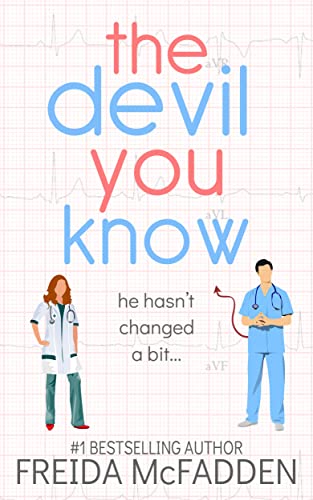
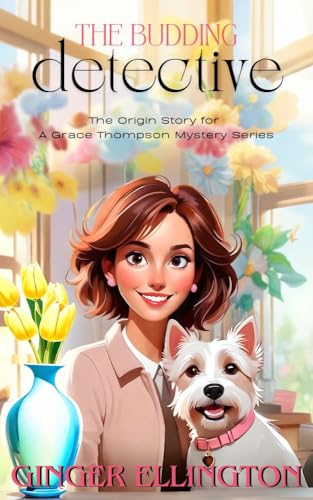
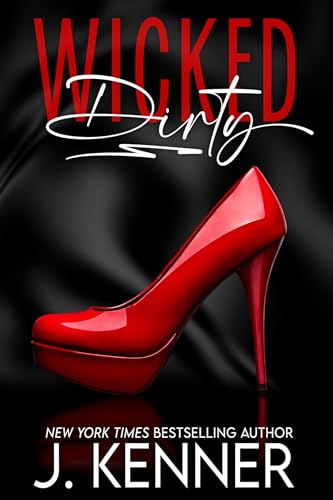
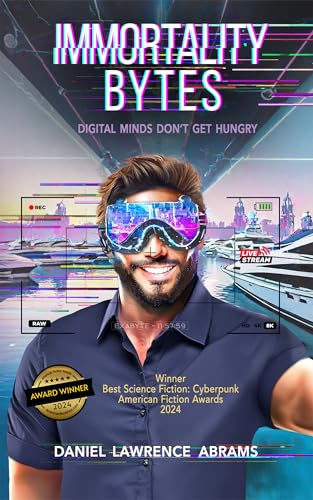
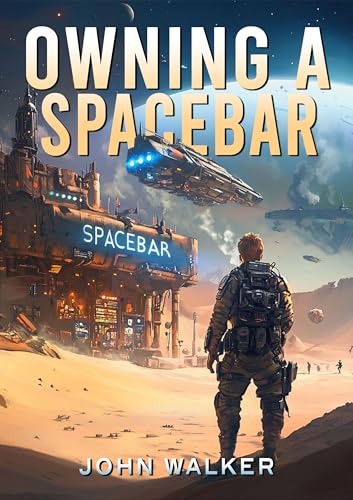
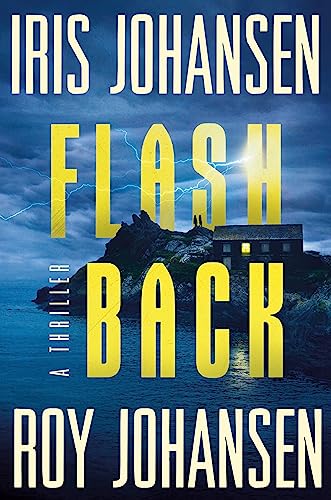
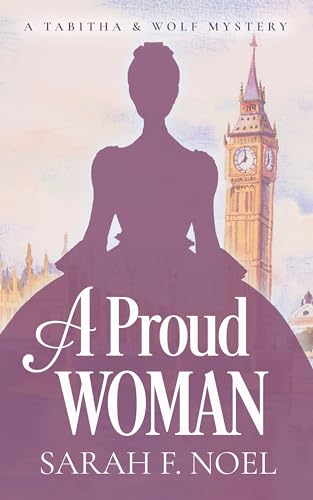
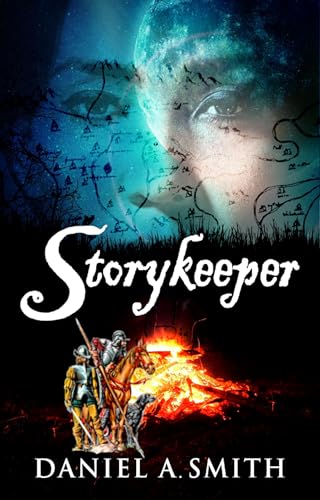
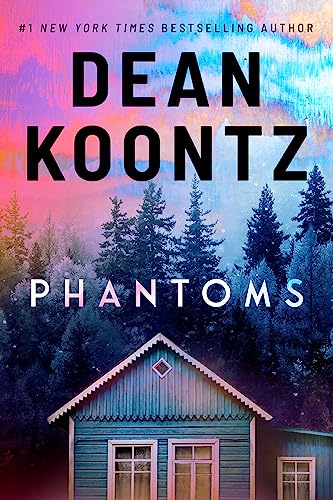
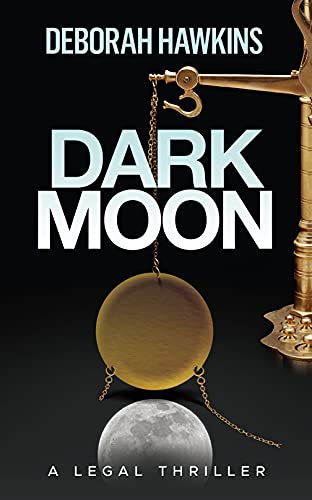
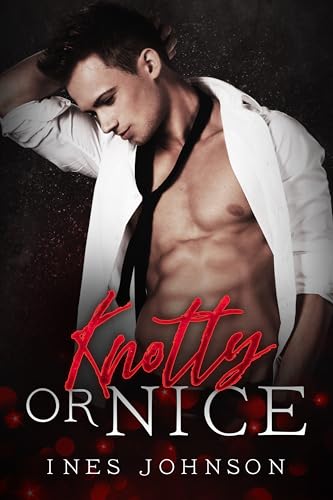





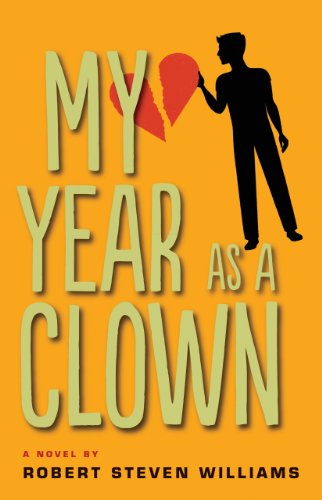
 Robert Steven Williams is an author, singer-songwriter, and musician. His debut novel, My Year as a Clown was published in December 2012 by Against the Grain Press. It won the silver medal for popular fiction from the Independent Publisher Book Awards in 2013.
As a writer, Williams was a finalist in the Raymond Carver Short Story Contest and was awarded a Squaw Valley Writers Community Thayer Scholarship. He attended Bread Loaf, Sewanee and the Squaw Valley Writers' Conferences, and worked closely with the esteemed fiction writer, Barry Hannah. His short fiction has appeared in Carve Magazine, The Orange Coast Review, and the anthology Tall Tales and Short Stories Volume II. Additionally, he was the executive producer of the critically acclaimed BOOM! Studios CBGB Comic series and nominated for a 2011 Harvey Award for Best Anthology. Robert's work has also appeared in Poets & Writers Magazine, Billboard, USA Today and LetterPress, a newsletter for writers. He is also co-author of the best-selling business book, The World's Largest Market.
As a musician, Williams studied songwriting with Rosanne Cash, Jimmie Dale Gilmore, and several other top country writers. In 2005 he released the critically acclaimed CD "I Am Not My Job," featuring Rachel Z (Peter Gabriel, Wayne Shorter) and Sloan Wainwright.
Robert Steven Williams is an author, singer-songwriter, and musician. His debut novel, My Year as a Clown was published in December 2012 by Against the Grain Press. It won the silver medal for popular fiction from the Independent Publisher Book Awards in 2013.
As a writer, Williams was a finalist in the Raymond Carver Short Story Contest and was awarded a Squaw Valley Writers Community Thayer Scholarship. He attended Bread Loaf, Sewanee and the Squaw Valley Writers' Conferences, and worked closely with the esteemed fiction writer, Barry Hannah. His short fiction has appeared in Carve Magazine, The Orange Coast Review, and the anthology Tall Tales and Short Stories Volume II. Additionally, he was the executive producer of the critically acclaimed BOOM! Studios CBGB Comic series and nominated for a 2011 Harvey Award for Best Anthology. Robert's work has also appeared in Poets & Writers Magazine, Billboard, USA Today and LetterPress, a newsletter for writers. He is also co-author of the best-selling business book, The World's Largest Market.
As a musician, Williams studied songwriting with Rosanne Cash, Jimmie Dale Gilmore, and several other top country writers. In 2005 he released the critically acclaimed CD "I Am Not My Job," featuring Rachel Z (Peter Gabriel, Wayne Shorter) and Sloan Wainwright.
